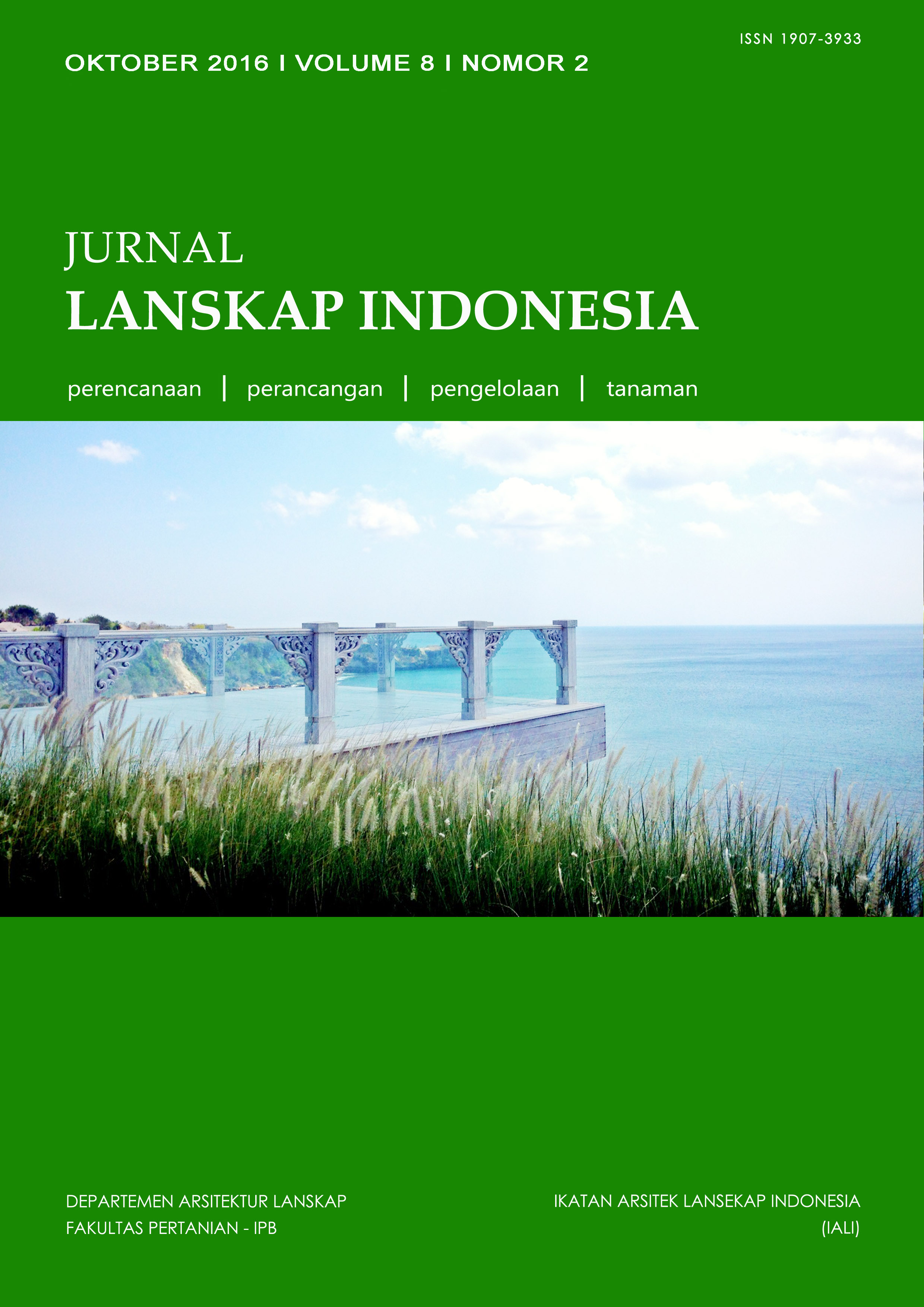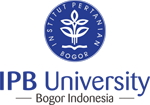PERENCANAAN LANSKAP SUNGAI SAMBAS KECIL BERBASIS NILAI MANFAAT DI KOTA SAMBAS, KALIMANTAN BARAT
Abstract
Sambas Kecil River area in Sambas City is a center of city growth, business, fishery, agriculture, and circulation of the society. The High intensity of utilization and the rapid development in the city, created degradation of the quality of the river and decreased the urban view, human health, transportation, social culture, economic, and recreation activity.This study aims to characterize the utilization and landscape plan based on benefit value for sustainability of Sambas River areas. The method that used was descriptive both qualitative and quantitative. Planning was used process and stages by Gold (1980). The result of analysis showed that the Sambas Kecil River area divided by three ecological sensitivities i.e. low (12.6 km), moderate (17.8 km), and high (12.6 km). The high sensitivity dominated by forest, the moderate dominated by agriculture and settlement, and the low dominated by settlement. Variety of activities are divided into three aspects i.e. social aspect, cultural aspect, and economic aspect. This planning based on benefit value of ecological and sustainability for Sambas Kecil River area and able to restore and maintain the natural character of the river. The result of integration of the river character and utilization created three plan models i.e. natural, semi-natural, and built areas of the development river landscape plan. This plan is expected to restore the value of the benefits of the river through the area management by local communities so they can feel directly the benefits from the existence of the river, and they will able to preserve the river sustainably.Downloads
This journal permits and encourages authors to post items submitted to the journal on personal websites or institutional repositories both prior to and after publication, while providing bibliographic details that credit, if applicable, its publication in this journal. However, after the article is submitted and published in this journal, it is fully copyrighted by the Jurnal Lanskap Indonesia or JLI. If excerpts from other copyrighted works are included, the author must obtain written permission from the copyright owner and give credit to the source in the article. Then, the writer or reader is allowed to copy, share, and redistribute articles/material in any form. But it must still include the appropriate source and credit because the article in this journal is licensed by Creative Commons Attribution 4.0 International License (CC BY 4.0).
I. Proposed Policy for Journals That Offer Open Access
Authors who publish with this journal agree to the following terms:
- Authors retain copyright and grant the journal right of first publication with the work simultaneously licensed under a Creative Commons Attribution License that allows others to share the work with an acknowledgement of the work's authorship and initial publication in this journal.
- Authors are able to enter into separate, additional contractual arrangements for the non-exclusive distribution of the journal's published version of the work (e.g., post it to an institutional repository or publish it in a book), with an acknowledgement of its initial publication in this journal.
- Authors are permitted and encouraged to post their work online (e.g., in institutional repositories or on their website) prior to and during the submission process, as it can lead to productive exchanges, as well as earlier and greater citation of published work (See The Effect of Open Access).
II. Proposed Policy for Journals That Offer Delayed Open Access
Authors who publish with this journal agree to the following terms:
- Authors retain copyright and grant the journal right of first publication, with the work after publication simultaneously licensed under a Creative Commons Attribution License that allows others to share the work with an acknowledgement of the work's authorship and initial publication in this journal.
- Authors are able to enter into separate, additional contractual arrangements for the non-exclusive distribution of the journal's published version of the work (e.g., post it to an institutional repository or publish it in a book), with an acknowledgement of its initial publication in this journal.
- Authors are permitted and encouraged to post their work online (e.g., in institutional repositories or on their website) prior to and during the submission process, as it can lead to productive exchanges, as well as earlier and greater citation of published work (See The Effect of Open Access).



























